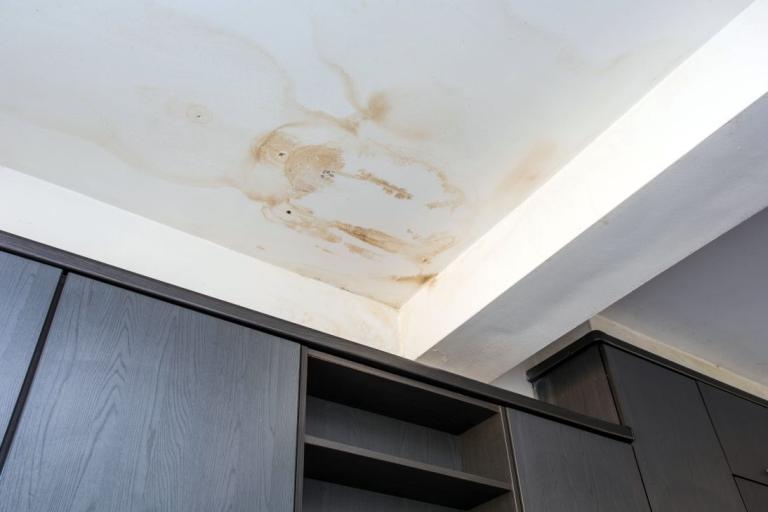If you have any questions about HHSRS, an inspection, or you're not clear on what the law requires of you to keep your properties and tenants safe, please don't hesitate to reach out to the Healthy Homes team and someone will be in touch to help.
Advice for landlords
When properties are well maintained, tenants are happier, healthier, and it helps reduce void periods. This also means that your income is more secure.
It’s worth self-assessing your properties annually. This will catch problems early, preventing a lot of disrepair, enabling you to future-proof your properties.
Landlord responsibilities
There are many things you are legally responsible for when it comes to keeping your properties and tenants safe. As a brief guide, you need to:
- Make sure your properties are safe and healthy by maintaining them regularly
- Ensure that all gas and electrical systems and equipment are safely installed and maintained regularly
- Keep a valid Energy Performance Certificate for the property
- Protect your tenant’s deposit if the tenancy is an Assured Shorthold Tenancy
- Conduct a Right To Rent Check
- Provide your tenant with a How To Rent Checklist
For more, see Renting out your property on GOV.UK.
Energy Performance Certificates
To rent out a property, you need to have a valid energy performance certificate (EPC), rated ‘E’ or above.
Check if your property has an EPC on GOV.UK
An EPC lets tenants and potential buyers know how energy efficient your property is. It gives them a general idea of how warm the property would be. How much it would cost to heat, as it includes the property’s typical energy costs.
EPCs are valid for 10 years from the date they are issued. The scale runs from A (very efficient) to G (least efficient). The assessor will recommend how to improve efficiency of your property as part of the certificate.
Find an assessor on the EPC Register to order an EPC on GOV.UK
Unless there is an EPC exemption in place, it is an offence not to provide a tenant with a valid EPC at the start of their tenancy. Not having a valid EPC at that point will mean that a Section 21 notice cannot be served to end an Assured Shorthold Tenancy.
Register an exemption on the PRS register on GOV.UK
If you do need to arrange an energy assessment, you must give your tenant at least 24 hours written notice before visiting the property, and your tenant must give their permission for the property visit (unless it is an emergency such as a fire or gas leak).
During housing inspections, Environmental Health Officers will check that the home has a valid EPC and the tenant has a copy. If there is no valid EPC, they will check to see if an exemption is in place.
Housing Health and Safety Rating System
Also known as HHSRS, this is how Environmental Health Officers inspect properties.
It ensures properties are safe, healthy, and free from hazards. The system takes into account the inside and outside of a property, shared areas, and access paths.

Gas safety
As a landlord, you are legally responsible for your tenants’ safety when it comes to gas safety.
Check your gas safety responsibilities on HSE.GOV.UK
Gas pipework, flues and appliances need to be safe, maintained, and repaired by a Gas Safe registered engineer. All gas appliances and flues must have a valid annual gas safety check.
You should also supply copies of the Landlord’s Gas Safety Record to your tenants before they move in, or within 28 days of the check.
See also Landlord Gas Responsibilities on GASSAFEREGISTER.CO.UK
Fire safety
As a landlord, you need to ensure that your property is a minimal fire risk.
There must be a safe way for anyone to escape from the property if there is a fire.
Cumbria Fire and Rescue Service offer free home fire safety checks and may fit free smoke detectors depending on your circumstances.
Fire alarms need to be present and working. Exactly what you need and how many depends on the property type and tenancy, and may need a written fire risk assessment.
Fire safety in shared or rented accommodation on GOV.UK
Your property must have at least one smoke alarm on every floor. Carbon monoxide alarms must be in working order in the same room as a combustion appliance (including gas or oil boilers, coal/gas fires and wood burning stoves)
Smoke and carbon monoxide England regulations 2015 on GOV.UK
On the day of a new tenancy, you must check that all alarms are working. It’s a legal requirement to keep records of when your property’s alarms are tested and repaired.
Any furnishings within the home need to meet fire regulations and are fire safe.
As part of fire safety, make sure a Gas Safe registered gas fitter checks any gas appliances every year.
You also have to supply your tenant with the safety certificates at the start of their tenancy and renewal of an existing tenancy.
Fire safety is also a part of the Housing Health and Safety Rating System, which Environmental Health Officers use in housing inspections to determine how hazardous a property is.
Electrical safety
Your property must have a safe electrical system, including sockets and light fittings. Your property’s electrical system has to be inspected and tested by someone qualified and competent, at least every 5 years.
You’ll receive a certificate from this inspection, known as an Electrical Installation Condition Report (EICR).
This is different to an Electrical Installation Certificate (EIC).
An EIC can only be used in place of an EICR when:
- A current EICR inspection is unsatisfactory and the EIC specifies the issues have been fixed. The works must be done within 28 days or within the specified time-frame within the EICR. Both certificates must be kept together.
- The property is a new build
- The EIC is for a full rewire of the electrical installation
It’s a legal requirement to provide a copy of the report to your tenants. For an existing tenant, give a copy within 28 days of the inspection. For new tenants, you need to give them a copy before they move in.
Prospective tenants may request an EICR, and you need to provide them with the certificate within 28 days of getting the request.
For the full list of guidance, see also Guide for landlords: electrical safety standards on GOV.UK
